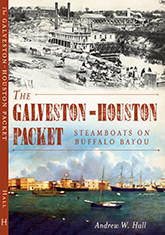“My humanity revolted at taking the poor devils away from their homes.”
 Over at the Encyclopedia Virginia Blog, Brendan Wolfe posts a letter written by Colonel William Steptoe Christian (right, 1830-1910) of the 55th Virginia Infantry during the Gettysburg campaign. Christian’s letter, written from camp, describes the campaign through the Maryland and Pennsylvania countryside so far, and the Confederate army’s efforts at foraging on the march. He also mentions the seizure of African Americans from the free soil of Pennsylvania:
Over at the Encyclopedia Virginia Blog, Brendan Wolfe posts a letter written by Colonel William Steptoe Christian (right, 1830-1910) of the 55th Virginia Infantry during the Gettysburg campaign. Christian’s letter, written from camp, describes the campaign through the Maryland and Pennsylvania countryside so far, and the Confederate army’s efforts at foraging on the march. He also mentions the seizure of African Americans from the free soil of Pennsylvania:
No houses were searched and robbed, like our houses were done, by the Yankees. Pigs, chickens, geese, etc., are finding their way into our camp; it can’t be prevented, and I can’t think it ought to be. We must show them something of war. I have sent out to-day to get a good horse; I have no scruples about that, as they have taken mine. We took a lot of negroes [sic.] yesterday. I was offered my choice, but as I could not get them back home I would not take them. In fact, my humanity revolted at taking the poor devils away from their homes.
They were so scared that I turned them all loose. I dined yesterday with two old maids. They treated me very well, and seemed greatly in favor of peace. I have had a great deal of fun since I have been here.
Christian’s letter is fascinating, both for what it says and what it doesn’t. Undoubtedly Colonel Christian’s perspective was shared by many Confederates, both officers and enlisted men. While he objected to searching and ransacking private residences, he had no qualms about the seizure of livestock for forage and even a personal mount for himself. And while he declined to take captured African Americans for himself personally, both on practical (“I could not get them back home”) and humanitarian grounds (“they were so scared that I turned them all loose”), he never questions whether he had the right to do so, not indeed if it was right to do so. Those larger questions simply aren’t part of his recorded consideration of the question, and one is left to imagine that, had his circumstances been different, might he have decided differently, as well.
Others in Lee’s army were not so scrupulous when it came to the well-being of their captives, many of whom had never been slaves at all, but were born free. In his essay, “Race and Retaliation: The Capture of African Americans During the Gettysburg Campaign,” David G. Smith uses original, primary sources like Christian’s letter to conclude that the total number of African Americans captured by Lee’s army and taken south during the Gettysburg campaign may have been more than a thousand.
_______________






The seizure of black people by the Confederate military during the Gettysburg campaign is well known, but its bigger than I thought anyway. Thousands of blacks fled the Confederate advance, traveling to Harrisburg, Philidelphia and elsewhere. I believe that a soldier in Rodes’s division estimated “nearly a thousand” being marched into slavery.
Yeah, it was a bad business. Confederates didn’t spend much time on Union soil, but when they did, their actions were in many respects not that different from Sherman’s, who of course is seen as an ogre of the first order.
It’s important to keep in mind that, in setting out of the Gettysburg campaign, the ANV was primed for exacting revenge, and many soldiers wrote about it specifically. The process of recruiting black troops (formal enlistment of whom in the USCT began simulataneously with Gettysburg) and the destruction of Fredericksburg caused a lot of resentment among Confederates, and the CS Congress had explicitly called on Jefferson Davis to exercise “full and ample retaliation” against the North for arming black soldiers. General McLaws wrote to his wife,
Sherman’s famous quote about “making the South howl” is taken as evidence of his intent go beyond the bounds of the rules of war in inflicting pain on the Confederacy, but I really don’t see much substantive difference in McLaws’ approach.
Something similar to the events of the Gettysburg campaign on which you posted happened in my hometown, Harpers Ferry, (West) Virginia, after Stonewall Jackson captured the place in September 1862. The town had become a Union enclave, and a haven for escaped slaves in considerable numbers. One Confederate attempted to claim as his slave a dark-skinned French-Canadian soldier in a Vermont regiment. The soldier punched his would-be owner in the face and managed to slip away with the rest of the paroled garrison. Of course, I suppose this sort of thing would not be seen as odious if one believed, as some professed to do, that slavery was an institution beneficial to black and white.
I intend no equivalence—I don’t know enough about the Civil War to draw any sturdy analogies—but I do have to say that this sensibility is echoed 75, 80 years later as the Third Reich ransacked its way through Poland, and, really, anywhere they encountered any sort of resistance to their rampages. “How dare they!” served to justify the most horrendous abuses.
I just started a book on the Volkish roots of National Socialism; I wonder if there’s something about blood-and-soil ideologies which lead to the simultaneous senses of superiority and grievance.
I see the point you’re making, but let’s please not use those particular analogies — they ad more heat than light.
Andy, that’s precisely why I said I was NOT drawing an analogy.
I know that people throw around charges of fascism and Naziism too easily, and, for the record, I’m not doing so here. To be as bald as possible: I don’t think the Confederates were fascists.
But just because National Socialism is the cheap bogeyman in too many conversations doesn’t mean we ought never reference it. The rise of the Third Reich was an even in history, not outside of it, and those of us interested in the history of, well, us, do ourselves no favors simply to rule out careful consideration of this bit of history simply because some have used that same history sloppily.
I simply noted a similarity in the superiority/grievance position, and wondered if this isn’t a thread which ties together a particular group of counter- and anti-modern ideologies. That I could be wrong doesn’t mean the question burns more than it illuminates.
Andy, I’m sorry if I was a bit sharp in my response, above. I stand by the substance of what I wrote, but I apologize for the peevishness.
This is, after all, a blog on the ACW, not on global politics or ideology, and perhaps it’s unfair to bring my own questions to your site—especially those which link, in however tentative a manner, the Confederacy and the Third Reich.
Finally, given all the guff you have to put up with from Lost Causers, I’m guessin’ you don’t need Nazis on your tail, too.
It’s just that there are folks who are looking for something to be faux-outraged about, and the mention of Nazis hits that button. It doesn’t matter how narrowly-defined the analogy is, it’s an excuse to play the victim. It tends to shut down discussion rather than encourage it.